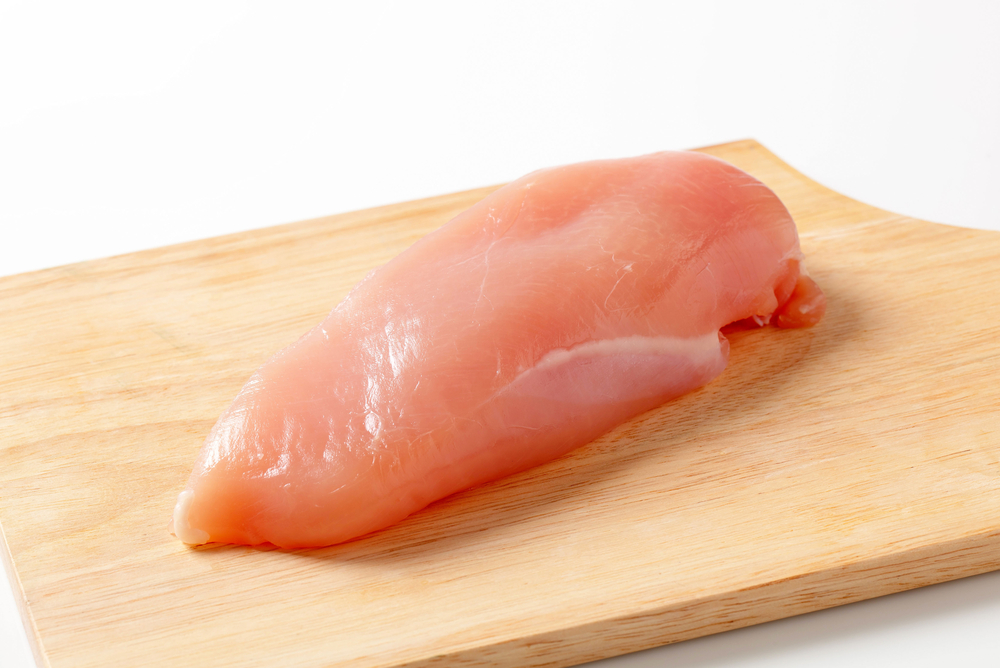Salmonella Outbreak: 5 Tips for Cooking Chicken Safely

While the current salmonella outbreak may have people concerned about eating chicken, experts point out that raw meat products always carry risk.
"Chicken in general carries risk, whether it's part of this outbreak or not," said Ben Chapman, a food safety specialist and assistant professor of food science at North Carolina State University. "There's pathogens on raw chicken regardless of where it comes from," he added.
So far, 317 people in 20 states have been sickened by an outbreak of Salmonella Heidelberg. Forty-two percent of ill people have been hospitalized, according to the Centers for Disease Control and Prevention. [Top 7 Germs in Food that Make You Sick]
Health officials say Foster Farms chicken products are the likely source of the current outbreak, but no recall has been issued.
Chapman gave some tips for reducing risk of illness when cooking and handling raw meat:
Avoid cross contamination
It's important to keep in mind that juices from meat can contaminate other objects and surfaces they come in contact with — such as your hands, kitchen counter, cutting knife or uncooked food — and spread around, Chapman said.
Sign up for the Live Science daily newsletter now
Get the world’s most fascinating discoveries delivered straight to your inbox.
Cross-contamination can happen at any point in the cooking and handling process, starting at the grocery store.
To avoid cross-contamination when buying meat, consumers should first make sure there is nothing dripping from the package, Chapman said.
Chapman said he also places meat in a separate plastic bag so that it doesn't contaminate other food or reusable bags. [Top Meats That Can Make You Sick]
When preparing food, people should clean their hands after touching raw chicken products, and clean other utensils and appliances that come in contact with raw chicken, such as a cutting board or knife, before using them again, Chapman said.
Don't wash your chicken
Although some people have been taught to wash raw chicken, this practice really promotes cross-contamination, Chapman said. Washing poultry can spread juices around, and sometimes spread bacteria up to three feet away, according to the University of Wisconsin–Madison.
Food safety researchers at Drexel University recently launched a public health campaign to help get the word out about the hazards of poultry washing, and created an animation showing how the practice can spread germs.
Chapman advised consumers to avoid this practice. "It can only increase risk," he said.
Thaw properly
There are several methods for thawing raw chicken that has been frozen, including placing it in the refrigerator, in cold water or in the microwave, according to the U.S. Department of Agriculture. You should not thaw raw chicken on the counter, the USDA says.
Chapman said that, regardless of the method people use, they should ensure that the outside of the chicken is not above 41 degrees Fahrenheit for more than four hours. Consumers should also take measures to prevent the spreading of juices that collect from the meat while it thaws, he said.
Cook properly
Consumers should not look at the color of meat or its juices to determine if it's cooked. The only way to know for sure whether you've reduced your risk of foodborne illness is to cook the meat to an internal temperature of 165 F.
Chapman recommends using a tip-sensitive digital thermometer, and checking the temperature of the meat in several spots.
Reheat to the right temperature
Any leftovers you have should be quickly cooled by placing them in a refrigerator, Chapman said.
If consumers properly cooked their meat the first time to 165 degrees F, and quickly cooled down the leftovers, then they can heat up leftovers to 145 or 155 degrees F, Chapman said. But to be extra cautious — for instance, if there's any question that the meat was cooked properly the first time — consumers can heat leftovers to 165 degrees F, Chapman said.
Using a thermometer is especially important if you reheat leftovers in the microwave, Chapman said, because a microwave may not cook the meat evenly, and some spots of the chicken may be undercooked.
Follow Rachael Rettner @RachaelRettner. Follow LiveScience @livescience, Facebook & Google+. Original article on LiveScience.

Rachael is a Live Science contributor, and was a former channel editor and senior writer for Live Science between 2010 and 2022. She has a master's degree in journalism from New York University's Science, Health and Environmental Reporting Program. She also holds a B.S. in molecular biology and an M.S. in biology from the University of California, San Diego. Her work has appeared in Scienceline, The Washington Post and Scientific American.









